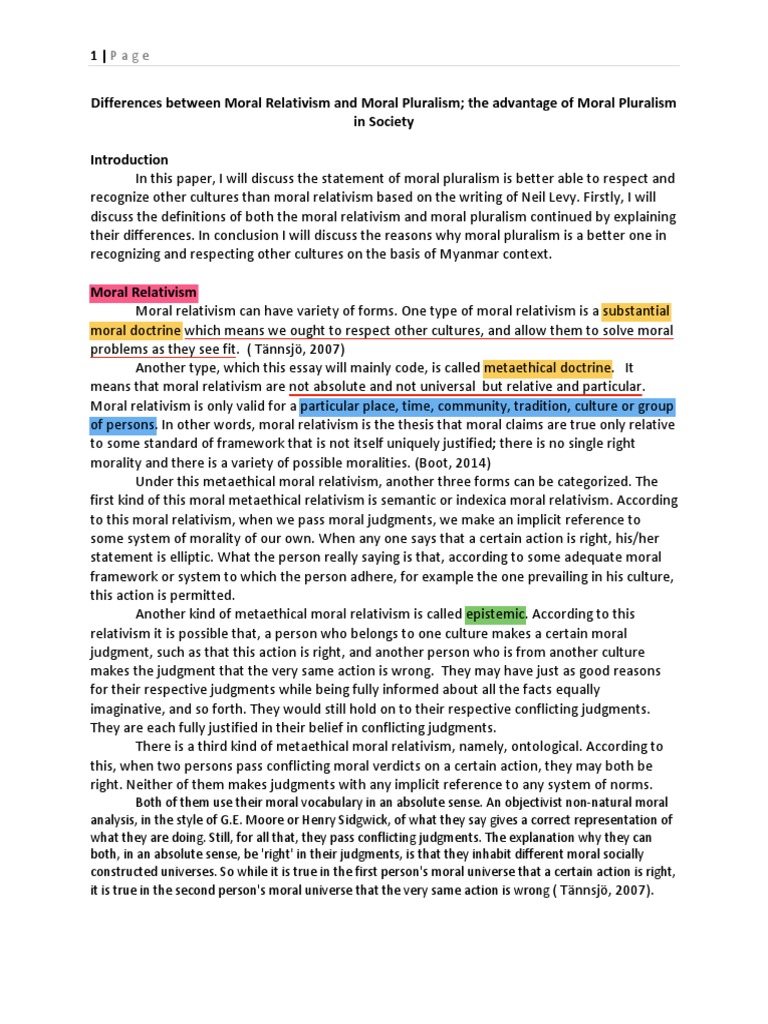In the realm of philosophy, the intricate pathways of thought often weave together like the delicate threads of a spider’s web, with various schools of thought glistening in the morning sun, inviting exploration. Among these pathways, pragmatism and moral relativism stand out, each offering a distinct perspective on ethics and truth, likened to two neighboring cities with different cultures that occasionally engage in fruitful dialogue.
Pragmatism, born in the late 19th century, emphasizes the practical application of ideas and the importance of consequences in shaping beliefs. This philosophical approach posits that the truth of a concept is not an abstract absolute but is instead defined by its utility and effectiveness in real-world application. Imagine a compass that guides you through uncharted territory; its accuracy is not inherent but verified through the paths it helps you navigate. Pragmatists advocate for a fluid understanding of truth, arguing that knowledge evolves as it is tested against experience.
On the other hand, moral relativism introduces a strikingly different lens through which to view ethics. It posits that moral judgments and values are not fixed, but rather contingent upon cultural, social, or personal contexts. Just as a chameleon adapts to its surroundings, moral principles can change based on varying circumstances and perspectives. This theory stands in contrast to moral absolutism, which asserts that there are universal moral truths applicable to all individuals at all times—similar to the fixed stars that guide sailors at sea.
When pragmatism intersects with moral relativism, a fascinating dialogue emerges, yielding a deeper understanding of how we navigate ethical dilemmas. Pragmatists might argue that moral relativism allows for a more flexible approach to ethics, accommodating the diverse tapestry of human experience. For instance, when faced with climate change, what is deemed ‘ethical’ behavior can vary dramatically across cultures. A community in a verdant rainforest may prioritize conservation efforts to preserve their home, while an industrialized society may struggle with the immediate economic benefits of exploiting resources.
Herein lies the pragmatist’s appeal: rather than adhering rigidly to one ethical framework, integrating multiple perspectives can lead to more effective solutions. The notion that ethical truth can be determined by outcomes rather than principles can be likened to a ship navigating through turbulent waters; it must adjust its sails to reach the intended destination without being steadfastly bound to a singular course.
However, the interplay of pragmatism and moral relativism is not devoid of complexity. Critics of moral relativism argue that if all moral positions are valid within their contexts, this could lead to ethical paralysis, where any action could be justified by cultural norms. A stark example of this is the challenge posed by practices hampering climate action, where some cultures may prioritize tradition over environmental stewardship. This leads us to consider whether some ethical considerations should indeed transcend cultural boundaries, particularly in the face of global crises like climate change.
The pragmatic approach advocates for discussion, encouraging a collaborative quest for solutions. If we regard morality as a garden enriched by diverse plants, the pragmatic gardener nurtures dialogue among different traditions, seeking common ground to foster a flourishing ecosystem of ethics. Take, for instance, the burgeoning movement toward sustainability. It embodies a collaborative moral endeavor that transcends cultural relativism, as people converge on the shared goal of preserving the planet. Such efforts reinforce the ideal that while moral frameworks can be diverse, a collective response to a shared crisis necessitates a degree of alignment in values.
Moreover, pragmatism’s attunement to consequences lends itself well to real-world applications of moral relativism by integrating empirical data and outcomes into ethical discussions. By examining the ramifications of our actions, we can discern not only the effectiveness of different ethical systems but also cultivate a shared moral foundation vital for combating global challenges. For example, when considering renewable energy initiatives, a pragmatic evaluation would weigh the environmental impact, societal acceptance, and economic feasibility of various approaches, encouraging adaptive cooperation across cultures.
Yet, the beauty of this collaboration lies in its ability to remain grounded in the uniqueness of each cultural narrative. Just as a symphony orchestra thrives on the diversity of its instruments, the inclusive dialogue between pragmatism and moral relativism enables different voices to harmonize in pursuit of harmony with our environment. Each culture, with its own ethical lens, contributes a note that enriches the broader discourse on sustainability and social responsibility.
Ultimately, the dynamic interplay of pragmatism and moral relativism serves as a reminder that in the complex tapestry of human experience, ethics cannot be encapsulated within rigid binaries. The call for adaptability and mutual understanding resonates deeply, particularly in addressing pressing issues like climate change, which transcends borders and cultural identities. Recognizing the fluid nature of truth, while honoring the richness of diverse perspectives, empowers us to craft solutions that not only respect individuality but also uphold the communal responsibility we share toward our planet.
In conclusion, navigating the confluence of pragmatism and moral relativism invites an expansive view of ethics, one that values both utility and diversity. By recognizing the distinct contributions of each philosophical paradigm, we equip ourselves to tackle the myriad challenges of our time. The road ahead may be fraught with uncertainty; however, as we cultivate a dialogical spirit and embrace a multiplicity of perspectives, we forge a path toward coexistence, understanding, and ultimately, a sustainable future.
